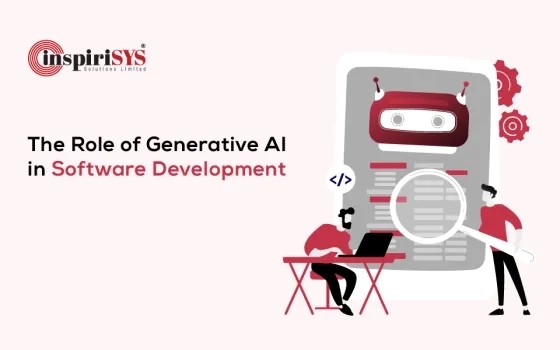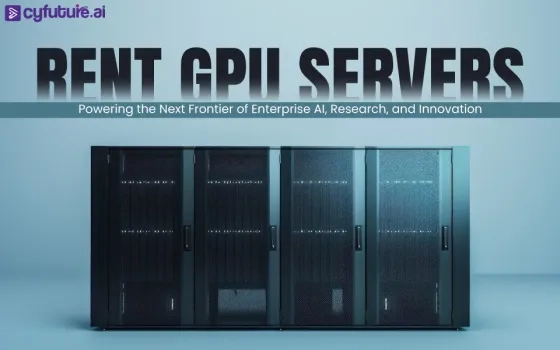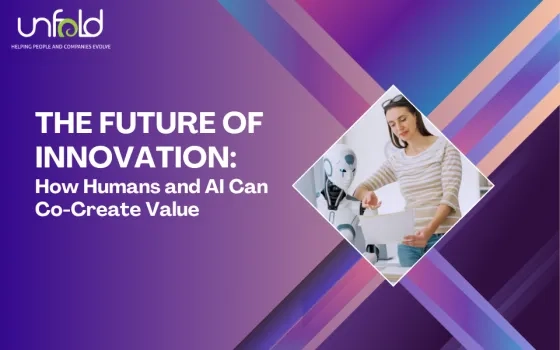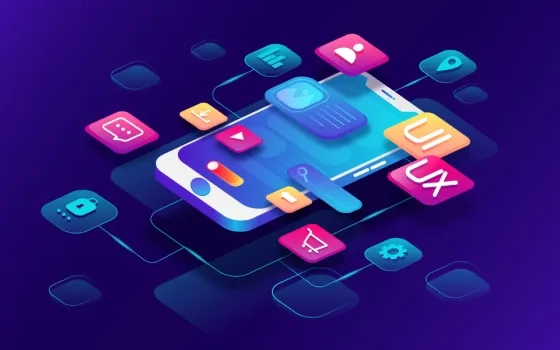Today's tech landscape demands something extraordinary, and that's precisely where Generative AI stands out, redefining the contours of multiple industries, including software development. This innovative technology goes beyond mere automation; it ushers in a new era of creativity and efficiency, challenging traditional paradigms of how software is conceived, developed, and maintained.
Generative AI introduces a shift from conventional coding practices to more dynamic, AI-driven methodologies, influencing every aspect of software development. As organizations adopt these capabilities, they must also revisit their operational standards, particularly in security and quality assurance, to ensure they remain at the forefront of technological excellence and safety.
Popular Gen AI Tools for Streamlined Software Development
Here are some powerful Gen AI tools that are making the software development process more effective:
1. OpenAI Codex
OpenAI Codex is a powerful AI tool that converts natural language into executable code. Utilizing models like GPT-3 and GPT-4, and trained on billions of lines of code. While it performs exceptionally well in Python, it also supports various languages, including JavaScript, Go and Swift. Codex boosts productivity by automating repetitive tasks, such as generating boilerplate code, which reduces errors and saves time. It also refines code by optimizing and refactoring, and simplifies multi-language projects by translating code between languages.
2. GitHub Copilot
GitHub Copilot integrates effortlessy with popular Integrated Development Environments (IDEs) to provide code suggestions, explanations, and context-aware support. Developed using OpenAI’s Codex model, this intelligent tool extends beyond traditional autocomplete capabilities by offering tailored recommendations that help developers accelerate workflows, reduce redundancy, and debug more swiftly. It boosts productivity by offering assistance in various programming languages, making it a versatile tool for developers.
3. AlphaCode
AlphaCode, developed by DeepMind, is advancing automated coding by skilfully addressing complex programming challenges. As a transformer-based language model, it uses sophisticated AI algorithms to interpret problem statements and generate accurate, efficient solutions, on par with experienced human programmers. This capability spans multiple programming languages, equipping developers to enhance their coding skills and approach intricate problems with heightened precision.
4. Amazon CodeWhisper
Amazon CodeWhisper redefines the programming experience with its advanced generative AI capabilities. This innovative tool offers real-time coding suggestions, providing complete lines or blocks of code to streamline project workflows. By accelerating development tasks, reducing errors, and elevating code quality, CodeWhisper proves to be an essential tool for software development teams focused on boosting productivity and maintaining high standards of code integrity.
5. IBM Watson Code Assistant
IBM Watson Code Assistant enhances the coding process by integrating smoothly into developers' environments, providing intelligent code completion, error resolution, and proactive suggestions for optimizing code. With its ability to speed up development tasks and ensure higher accuracy and productivity, this tool is ideal for teams looking to refine their software solutions continuously. IBM Watson Code Assistant is an indispensable tool in the modern developer's toolkit.
Use Cases of Generative AI in Software Development
Uncover the core use cases of Generative AI and its profound effect on the development process, helping developers increase productivity and innovate with greater efficacy:
1. Automating Code Development
Generative AI is revolutionizing traditional coding practices by enabling the creation of entire functions, classes, and intricate database queries tailored to specific codebases. This advanced capability allows developers to input high-level requirements in plain English, while AI handles the intricate details of coding, significantly reducing the burden of repetitive, low-level tasks.
For example, AI agents that analyze an app’s existing code, data schemas, and documentation to autonomously develop a customized CRUD REST API for a mobile app backend. This level of automation not only streamlines prototyping but also accelerates the production of boilerplate code across various programming languages and frameworks.
2. Efficient Testing and Debugging
Modern deep learning models expedite the analysis of large codebases, offering speed and accuracy that surpass manual code reviews. AI coding assistants act like additional team members, proactively identifying bugs, security flaws, and performance issues early in the development process.
For instance, AI can automate the creation of intricate test cases that extend beyond basic scenarios to include edge cases and real-world conditions, significantly enhancing software resilience. Furthermore, in debugging, AI delves into code context and traces complex execution paths, pinpointing underlying issues to facilitate precise corrections.
3. Streamlined Documentation Creation
Generative AI streamlines the documentation process, transforming code and usage context into polished, comprehensive documents across formats like Markdown, HTML, and PDFs. It automatically generates comprehensive API references, library guides, and detailed application docs from code and contextual usage.
For instance, for APIs and libraries, AI can generate well-organized documents complete with code samples for each module, class, and method. For applications and services, it can craft extensive help guides and manuals that elucidate how components interact. Although, AI boosts document production but relies on human oversight to ensure accuracy and quality.
4. Adaptive Customization Through AI Insights
AI-driven tools personalize the coding experience by adapting to individual developers' unique styles and preferences, significantly boosting their productivity. By analyzing past coding behavior, these tools customize everything from code suggestions to quality checks.
For example, if an AI observes a developer’s preference for certain naming conventions or code organization, it can fine-tune its suggestions and even adapt linting rules to fit these habits, ensuring that all assistance is highly relevant and effectively reduces mundane coding efforts.
5. Enhancing Code Security
Early detection of vulnerabilities is crucial in preventing security breaches, and AI-driven solutions play a key role in this process. By analyzing security frameworks like OWASP, they identify risks such as SQL injections, broken access controls, and dependency vulnerabilities before they become major threats.
For example, an AI assistant can automatically flag missing encryption in sensitive data handling, ensuring compliance with regulations like HIPAA, PCI DSS, and GDPR. With automated scanning offering deeper insights than manual audits, AI helps build more secure and compliant software.
Benefits of GenAI in Software Development
Generative AI offers developers a range of advantages, streamlining processes and improving outcomes. Integrating it into workflows further enhances efficiency and accelerates development.
1. Enhanced productivity
Automated code and test case generation speed up development, allowing for quicker human review and refinement.
2. Accelerated Prototyping
Developers can produce mockup code that, while not production-ready, effectively conveys ideas to stakeholders.
3. Decreased Error Rate
Automation helps eliminate errors such as misnamed variables and uninitialized pointers, enhancing code reliability in routine tasks.
4. Better Code Quality
GenAI assists in code reviews, identifying errors, security flaws, and misalignments with business needs for more reliable software.
5. Greater Accessibility
Non-developers can generate simple programs using natural language, making software development more inclusive.
Conclusion
Staying competitive in an evolving industry requires a strategic and adaptive approach to AI integration. For developers, leveraging AI-powered tools is no longer optional but essential to staying ahead.
Success lies in recognizing AI as an enhancer of human capability rather than a replacement. By adopting the right tools, fostering continuous learning, and upholding ethical standards, developers can harness AI as a driver of innovation rather than just a passing trend.
The future of software development isn’t a competition between humans and machines—it’s a collaboration where both work together to unlock new possibilities.

























